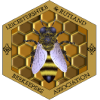Buying Bees
There are several things to consider when buying bees to ensure that you are getting a strong, healthy colony that is suitable for your needs.
Before making a deal, always ensure that:
- Ascertain that the stocks offered are suitable for your needs.
- Try to avoid buying bees from outside your area/County as it could accelerate the spread of pests and diseases. Leicestershire and Rutland have an extremely good record for being disease-free and for the benefit of all members; it would be good to keep it that way! Note that many experienced beekeepers consider that local strains generally suit the natural flora of that locality.
- Use a reputable supplier.
- Check with the supplier where the queen has come from. It is not always clear what strain of honey bee you are obtaining and whether the queen has been bred by the supplier, bought in or imported.
- If possible examine the bees before purchase to ensure they meet the required standard and are disease free. If you are not competent to do this then ask a beekeeper who is to check for you. LRBKA advisors can provide more help and advice on this.
- If the vendor is not prepared to show you or allow examination consider why.
- Maintain a record of your purchase.
As a guide a good nucleus (nuc) will:
- Have a good quality, young laying queen. She may be marked and/or clipped.
- Have all stages of bee brood present.
- Be free of signs of disease. Have at least three frames with brood.
- Have four frames or more fully covered with honey bees.
- Have the equivalent of at least one full comb of honey and half a frame of pollen as stores.
- All combs should be in a good and clean condition, preferably being less than one season old.
For more information on buying bees and anything to do with bees see the National Bee Unit website: www.nationalbeeunit.com.
